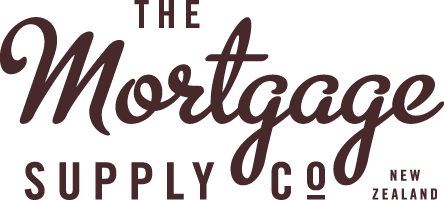
Buying your first home is one of the biggest and most memorable stages of your life. It's not as simple as buying a car and sometimes it can be tricky.
You might face occasions where you're really close to buying the home of your dreams but you miss out because of something unexpected. Or maybe you succeed in buying your first home only to realise that you would have bought differently with more experience and knowledge.
When it comes to buying your first home, the more information you have, the better it is. In our comprehensive guide, we've listed almost everything you need to know if you're planning to buy your first home.
Let's get started.
Contents:
2. Using KiwiSaver and other government assistance
1. Buying a property
In this section, we'll discuss the different ways of buying a house.
Buying - Fixed Price
When the vendor has listed at a fixed price - this is typically the amount that they would sell at. You are able to negotiate on this by putting a lower offer in and testing the waters. The Real Estate agent should be able to provide you with some initial feedback if you offer lower than the listed price. This is where a pre-approval can help you as you will know your maximum price you can afford. It is then up to you and the vendor find common ground to action a sale.
Buying at auction
Auctions can be good for the seller or good for the vendor. It depends on how many bidders are there trying to purchase the home. More bidders will result in a higher selling price. It is important to have a pre-approval before you head to an auction as an auction is an unconditional sale which means if you buy the home and the finance is unavailable there will be financial penalties you need to pay.
Find out more about different ways of buying a property in detail here.
Buying via tender
Tender is basically a blind auction where everyone who's interested in buying the listed house makes an offer by a certain date. You won't know how much the seller is looking for as the house won't be advertised with an asking price. After the given date, all the offers are opened by the seller and they make their decision.
Buying via private treaty
It's similar to buying via tender, but you as a buyer have more control and flexibility. In a private treaty sale, the house is advertised with a price and you can negotiate the price with the seller keeping the current market price in mind.
2. Using KiwiSaver and Other Grants
Buying a house is going to use up the majority of your savings, these are your savings that you have worked hard to accumulate, it is in your interests to get all the financial help you can. Let's discuss what options you have.
Accessing your KiwiSaver
If you're a KiwiSaver member, you can withdraw funds from your accounts during first home purchase if you meet the following criteria:
- You have contributed at least 3% of your income for three years
- You're purchasing an home that you will be living in
- You have a minimum of 10% deposit (including your KiwiSaver withdrawal)
- 2nd chance withdrawal is available if you are in the same financial position as a first home buyer
As per the new rules, you can withdraw all but $1000 from KiwiSaver for the initial deposit.
KiwiSaver HomeStart grant
Not only you can withdraw money from you KiwiSaver account, but you can also get a grant of up to $5000 if you meet the following criteria:
- You have contributed at least 3% of your income for three years.
- You have a minimum of 10% deposit (including the grant)
- Your income before tax is less than $85,000 (for one person) or $130,000 (for two or more people) 12 months before applying for the grant
- You're planning to live in the house for at least six months after purchase
- You're buying a house under $600,000 in Auckland, $500,000 in other major metropolitan areas or $400,000 throughout the rest of New Zealand
Welcome Home Loan
If you have the capability of making mortgage payments on time but are having difficulty gathering the initial deposit, then you can apply for the Welcome Home Loan, which is a loan that is offered by specific lenders and is supported by Housing New Zealand.
Find out more about government assistance here.
3. Choosing a home
You might want to ask yourself some of the following questions:
- What kind of houses does this suburb have?
- What kind of people live here?
- Are there any schools or playgrounds in the area?
- What's the crime rate?
- What kind of amenities are there in the neighourhood?
- How long will it take to get to work?
- Does the house have the potential of being a lucrative investment property?
An important aspect of choosing your first home is location. A house can be taken away or rebuilt, but the ground it sits on is there to stay. The location of your house will play a huge role in determining your quality of life and your home's financial value. That's why it's not just about the house - it's also about where the house is located. Once you have shortlisted a few suburbs, drive around and have a look at the neighbourhood. Here are the different types of ownership you should be aware of:
Freehold
In short, freehold gives you complete ownership - you own the house as well as the land.
Leasehold
You own the house (or apartment), but you don't own the land. You have to pay an early rent because your house is on someone else's land. When it comes to leasehold, be careful about the commercial leaseholds as agents might offer you a very low leasehold rate for the first year and then increase it substantially in future.
Strata or unit title
You'll have the complete ownership of your unit and an undivided share of any common areas. However, you'll have to pay for the maintenance of common areas and other things, like building insurance.
Learn more about choosing a home here.
4. Types of mortgage
Structuring your mortgage to suit your lifestyle, future goals and taking advantage of rates is a key aspect of managing your lending.
Here are the different types of mortgages:
Fixed-rate home loans
With this type of home loan, you don't have to worry about the fluctuating interest rates. You get to fix the interest rate for a period (usually one to five years). If the market interest rates move, your rate stays fixed until the fixed period ceases. You know what your repayments will be which gives you certainty.
Floating rate home loans
This type of mortgage gives you more flexibility. You repay the money that you have borrowed based on the current floating interest rates. You can pay off your loan faster by making extra payments, without penalty.
Combination home loans
As the name suggests, this type of loan is a combination of both fixed-rate home loan and floating-rate home loan. You have the flexibility to fix a portion of your loan at a set rate and other portion at a floating rate.
Revolving credit home loans
Similar to an overdraft, this is a floating interest rate loan. It allows you to borrow money (up to certain limit) and pay interest at mortgage rates. Based on how much you borrow and repay, the credit may increase or decrease.
Find out more about different types of mortgages (along with the pros and cons of each) here.
5. Preparing for pre-approval
This provides you with certainty that you have the finance organised. This enables you to make an offer without the 'subject to finance' clause. Pre-approval gives you certainty when heading to auction or when negotiating on purchasing. When a lender gives you the pre-approval there are still conditions to meet to get the finance but these are known to you prior to bidding/negotiating
Here are some documents you need on hand:
- ID proof - your passport or driver license
- Proof of income - your employment contract or three months of payslips or financial accounts (if you're self-employed)
- Bank statements: pretty self-explanatory, lenders need to see the recent three months of transactions on your day-to-day bank account
- Confirmation of deposit - this include bank statements from savings account, confirmation of KiwiSaver withdrawal, HomeStart Grant approval, or gifting letter.
- Address verification- a credible document that has your address on it, for example, your bank statement or your utility bill.
Find out more about pre-approval here.
If you have any more questions do not hesitate to get in touch. Our friendly and experienced advisers are also there to help you buy your first home.











